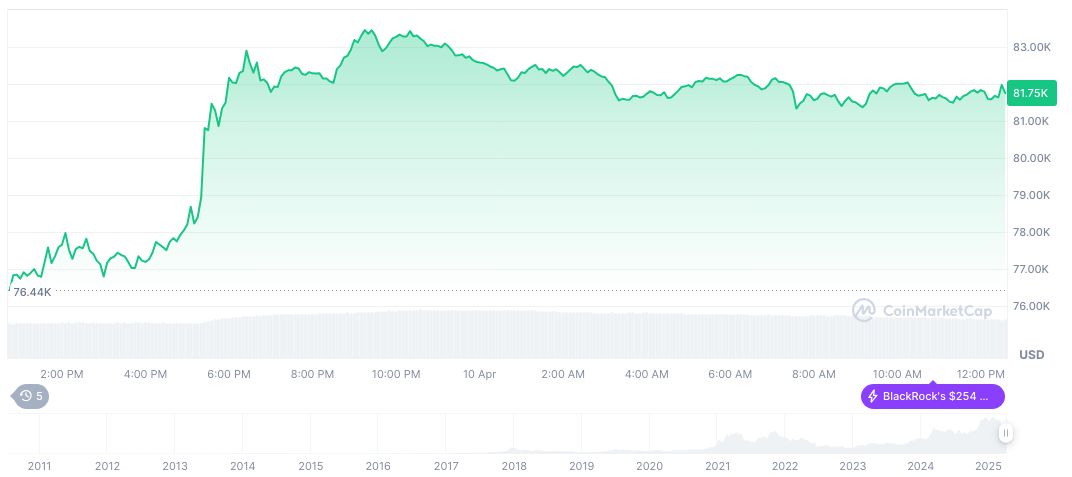- Trump’s tariff suspension boosts U.S. markets and Bitcoin prices.
- U.S. stock markets gain $4 trillion in value.
- Bitcoin surges to $82,000, marking a 5.7% hourly increase.
President Donald Trump announced a 90-day suspension on certain tariffs on April 10, 2025, in the United States.
The suspension temporarily alleviates global economic concerns and is viewed as a move to rebalance trade, prompting a surge in financial markets.
Trump’s Tariff Relief Boosts U.S. Market by $4 Trillion
Trump’s announcement of a 90-day suspension of tariffs has led to a notable increase in U.S. market valuations. With his administration’s focus on trade rebalancing, significant economic implications are expected in the immediate period.
The global financial environment undergoes a positive shift following this announcement. U.S. stock markets reportedly gained $4 trillion in value swiftly. Bitcoin saw a spike, breaking the $82,000 mark, reflecting increased investor confidence amid macroeconomic relief.
Market observers and industry experts have responded with optimism regarding the temporary halt in tariffs. Statements reaffirming the strategy as part of Trump’s economic policies have been reinforced, with key stakeholders indicating potential long-term benefits. Trump’s statement encapsulates the sentiment:
The necessity of tariffs is crucial to rebalance trade.
Bitcoin Price Surges to Record High Amid Economic Optimism
Did you know? In the past, similar tariff relief measures have led to short-term boosts in global markets, illustrating the sensitivity of financial environments to trade policy changes.
According to CoinMarketCap, Bitcoin prices surged, achieving $81,524.26, reflecting a 4.82% rise over the past 24 hours. It holds a market capitalization of 1,618,201,812,519.00 within a 62.67% dominance rate, influenced by increased trading activity showing a 6.16% shift.

Experts from the Coincu research team suggest that while short-term financial relief is evident, long-term outcomes will depend on regulatory consistency and technological adaptability. Market stability could hinge on continued global economic collaboration responding to trade adjustments.























